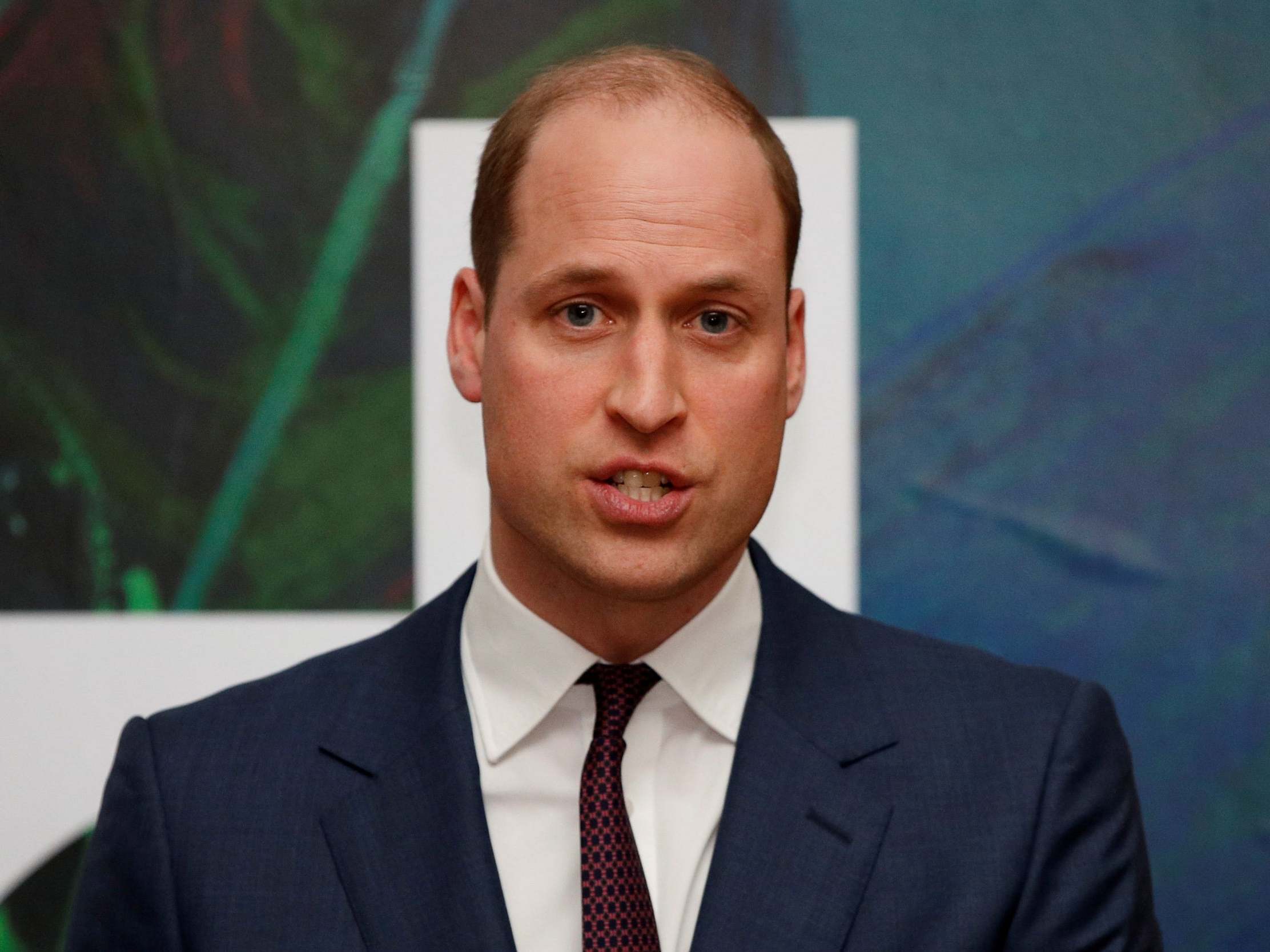This website uses cookies so that we can provide you with the best user experience possible. Cookie information is stored in your browser and performs functions such as recognising you when you return to our website and helping our team to understand which sections of the website you find most interesting and useful.

Prince William has praised efforts to “end the illegal wildlife trade for good” and backed a new report highlighting the global threat caused by the highly-lucrative criminal enterprise.
The Financial Action Task Force (FATF), the money laundering and terrorism funding watchdog, estimates that the illegal wildlife trade is worth between $7bn and $23bn (£5.6bn and £18.5bn) annually and urges for greater focus on the financial aspects of major transnational crime.
In collaboration with the Duke of Cambridge’s United For Wildlife organisation, the FATF's report assesses the money laundering aspects of wildlife crimes and provides guidance to countries on how to combat money laundering from the trade.
The Independent's Stop The Wildlife Trade campaign was launched by its proprietor Evgeny Lebedev to call for an end to high-risk wildlife markets and for an international effort to regulate the illegal trade in wild animals to reduce our risk of future pandemics.
Criminals misuse legitimate wildlife trade and the import and export business as a front to move and hide illegal proceeds from wildlife crimes. They also heavily rely on bribing officials, including rangers, customs agents, prosecutors and judges, the FATF report found. It noted that traffickers often rely on corruption, complex fraud and tax evasion.
Prince William praised the FATF, saying that the report is “a pivotal moment in the fight against the illegal wildlife trade.”
In a video message, he said: “The work that has been done will help authorities trace the finances of the transnational organised crime gangs that facilitate this abhorrent activity.
“It underlines the need for us to work together to tackle the ill-gotten gains of wildlife poachers and traffickers and put a stop to this multi-billion criminal dollar enterprise.”
He praised the FATF and United for Wildlife for using the report to educate governments around the world, adding: “This will help to improve and co-ordinate the public and private sectors to detect, disrupt and prevent this crime.
“Because it is only through prioritising this issue and following the money that we will stop these criminals in their tracks.
“Once again, I am grateful to you all for your continued efforts to end the illegal wildlife trade for good.”
The FATF report is based on research and case studies from more than 50 countries across the FATF Global Network and observers, as well as civil society and the United for Wildlife Financial Taskforce.
The report included some examples of the illegal wildlife trade, giving an indication of the magnitude of the issue.
It noted that while the price paid to elephant poachers can be around $200, when it reached markets ivory can be priced at $500-$1,000 per kg.
The report also found that between 2016 and 2019, countries confiscated an estimated 206.4 tonnes of pangolin scales around the world, totalling $41m-144m in sales at their destinations.
The FATF discovered that technology was integral for buyers and sellers to communicate and carry out transactions, particularly through encrypted platforms and marketplaces on social media, with the VPN connection disguising the location of traffickers.
In its recommendations, the FATF has urged governments around the world to engage in “high-level political commitment” in investigating these crimes, and proposed a collaboration between law enforcement and anti-money laundering organisations.
Contributed reporting by the Press Association



 Africana55 Radio
Africana55 Radio 

